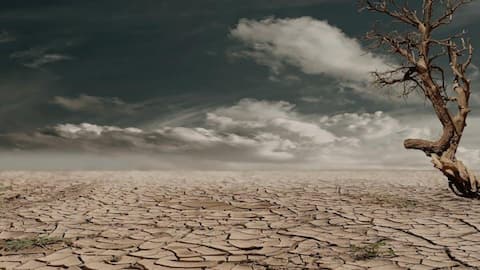World Health Day: How climate change is affecting public health
What's the story
World Health Day, observed on April 7, aims to raise awareness about global health challenges and promote overall well-being. One of the most pressing public health concerns today is its connection to climate change, which poses a growing threat to communities worldwide. Research indicates that 3.6 billion people are at risk of rising disease rates, worsening air quality, and intensifying extreme weather events.
Global warming
Rising temperatures and heat-related illnesses
According to the WHO, heat-related deaths among people over 65 have risen by 70% in the past two decades. Global warming has intensified heatwaves, leading to dehydration, heat strokes, and cardiovascular issues. Vulnerable groups, such as the elderly and outdoor workers, are most affected. Extreme heat worsens air quality, increasing respiratory problems. Green spaces and cooling infrastructure can help mitigate these risks.
Industrial emissions
Air pollution and respiratory diseases
Climate change contributes to rising pollution levels, triggering asthma, lung infections, and other respiratory diseases. Wildfires, industrial emissions, and vehicle pollutants worsen air quality, affecting millions. Children and the elderly are particularly at risk. Reducing fossil fuel use and promoting clean energy can improve air quality and overall health.
Shifting weather patterns
Infectious diseases and changing ecosystems
Warmer temperatures and shifting weather patterns have expanded mosquito-borne diseases like malaria and dengue. Assessing vulnerable areas, such as sub-Saharan Africa, reveals rising temperatures and flooding have led to cholera outbreaks in Mozambique, Sudan, and Nigeria. Additionally, prolonged droughts in Kenya and Ethiopia have worsened malnutrition, further threatening public health.
Mental health
Mental health impact of climate disasters
Frequent floods, droughts, and wildfires cause displacement, economic loss, and emotional distress. Many people experience eco-anxiety and depression due to climate-related disasters. The uncertainty of losing homes, livelihoods, and communities increases mental health struggles, leading to stress, anxiety, and trauma. Addressing these challenges requires mental health support and climate resilience strategies.
A call to action
Protecting public health in climate change
In the short term, climate change's health impacts depend on population vulnerability, resilience, and adaptation. In the long run, reducing emissions and preventing irreversible damage will be key. On World Health Day, it's vital to acknowledge that climate change is not just an environmental issue—it's a global health crisis. Taking action today is crucial for a safer, sustainable future.
